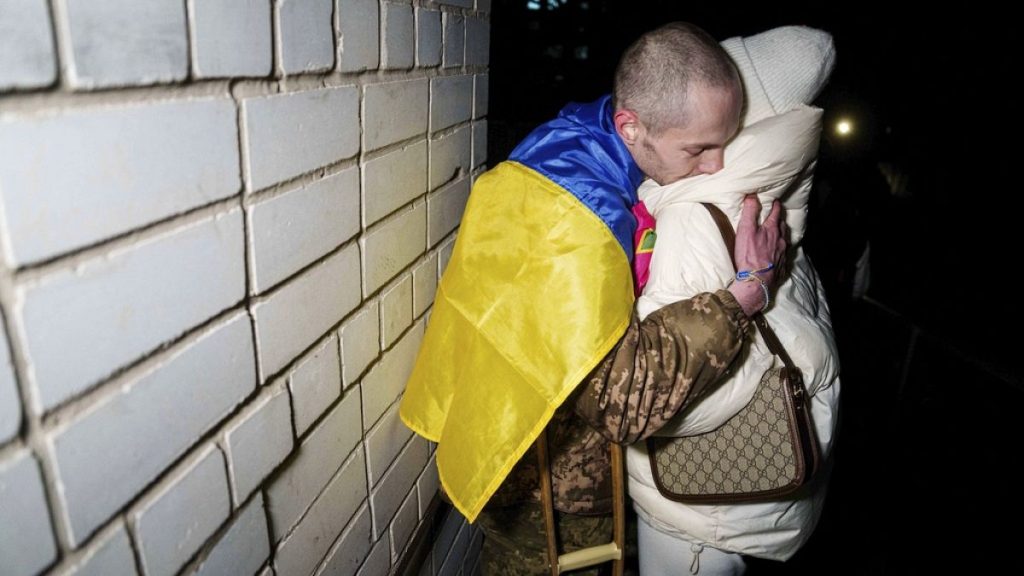Paragraph 1: Context of the Prisoner Exchange
The ongoing conflict between Russia and Ukraine, ignited in February 2022 with Russia’s full-scale invasion, has resulted in a devastating humanitarian crisis and widespread human suffering. Among the many tragedies of this war is the capture and detention of military personnel and civilians on both sides. Prisoner exchanges have become a critical, though often complex and fraught, mechanism for alleviating some of this suffering and offering a glimmer of hope amidst the ongoing violence. These exchanges represent not only the return of individuals to their families and homelands but also serve as a crucial channel for communication and potential de-escalation between the warring parties. The latest prisoner exchange, confirmed on December 31, 2024, highlights the continuing importance of such humanitarian efforts.
Paragraph 2: Details of the Exchange
On December 31, 2024, a significant prisoner exchange took place between Ukraine and Russia, facilitated by the United Arab Emirates. Ukrainian President Volodymyr Zelenskyy confirmed the release of 189 Ukrainians, comprising primarily military personnel and including two civilians. Concurrently, Russia’s Defence Ministry announced the return of 150 Russian soldiers. While specific details regarding the identities and conditions of the released individuals were not immediately available, the exchange represents a substantial return of captives for both sides. The involvement of the UAE as a mediator underscores the growing role of international actors in seeking to mitigate the human cost of the conflict.
Paragraph 3: The Role of Mediation
The UAE’s mediation in this prisoner exchange exemplifies the crucial function neutral third parties can play in facilitating communication and building trust between warring factions. The complexities of prisoner swaps often require a trusted intermediary to navigate sensitive negotiations, verify identities, and ensure the safe and dignified transfer of individuals. The UAE’s involvement builds upon its prior engagement in humanitarian efforts related to the Ukraine conflict and reinforces the importance of international cooperation in addressing the humanitarian repercussions of war. Such mediation efforts can contribute to building momentum for further dialogue and, potentially, broader peace initiatives.
Paragraph 4: Humanitarian Significance
The release of these prisoners carries profound humanitarian significance, marking the end of captivity and uncertainty for the individuals involved and their families. For the released prisoners, the exchange represents a return to freedom, the opportunity to reunite with loved ones, and the commencement of the long process of physical and psychological recovery from the trauma of war and detention. For their families, the news brings immense relief and the promise of healing after enduring prolonged periods of anxiety and separation. The humanitarian impact of such exchanges extends beyond the immediate individuals involved, reinforcing the importance of upholding human dignity and international humanitarian law even amidst the ravages of conflict.
Paragraph 5: Implications for the Conflict
While prisoner exchanges primarily address humanitarian concerns, they can also carry broader implications for the trajectory of the conflict. These exchanges can contribute to building a degree of trust between opposing sides, creating an opening for further dialogue and potential de-escalation. While a single prisoner swap does not necessarily signal a shift in the overall dynamics of the war, it can serve as a confidence-building measure and a demonstration of willingness to engage in humanitarian cooperation. The long-term impact of such exchanges on the broader peace process remains uncertain, but they represent a positive step in addressing the human cost of the conflict.
Paragraph 6: Looking Ahead
The December 31, 2024 prisoner exchange offers a glimmer of hope amidst the ongoing devastation in Ukraine. The successful release of captives on both sides underscores the importance of continued humanitarian efforts, mediation by neutral parties, and adherence to international humanitarian law. While the conflict persists, these exchanges represent a vital mechanism for alleviating suffering, fostering communication, and potentially contributing to a path towards a more peaceful resolution. The international community must continue to support such initiatives and work towards a comprehensive end to the conflict that respects the sovereignty and territorial integrity of Ukraine.














